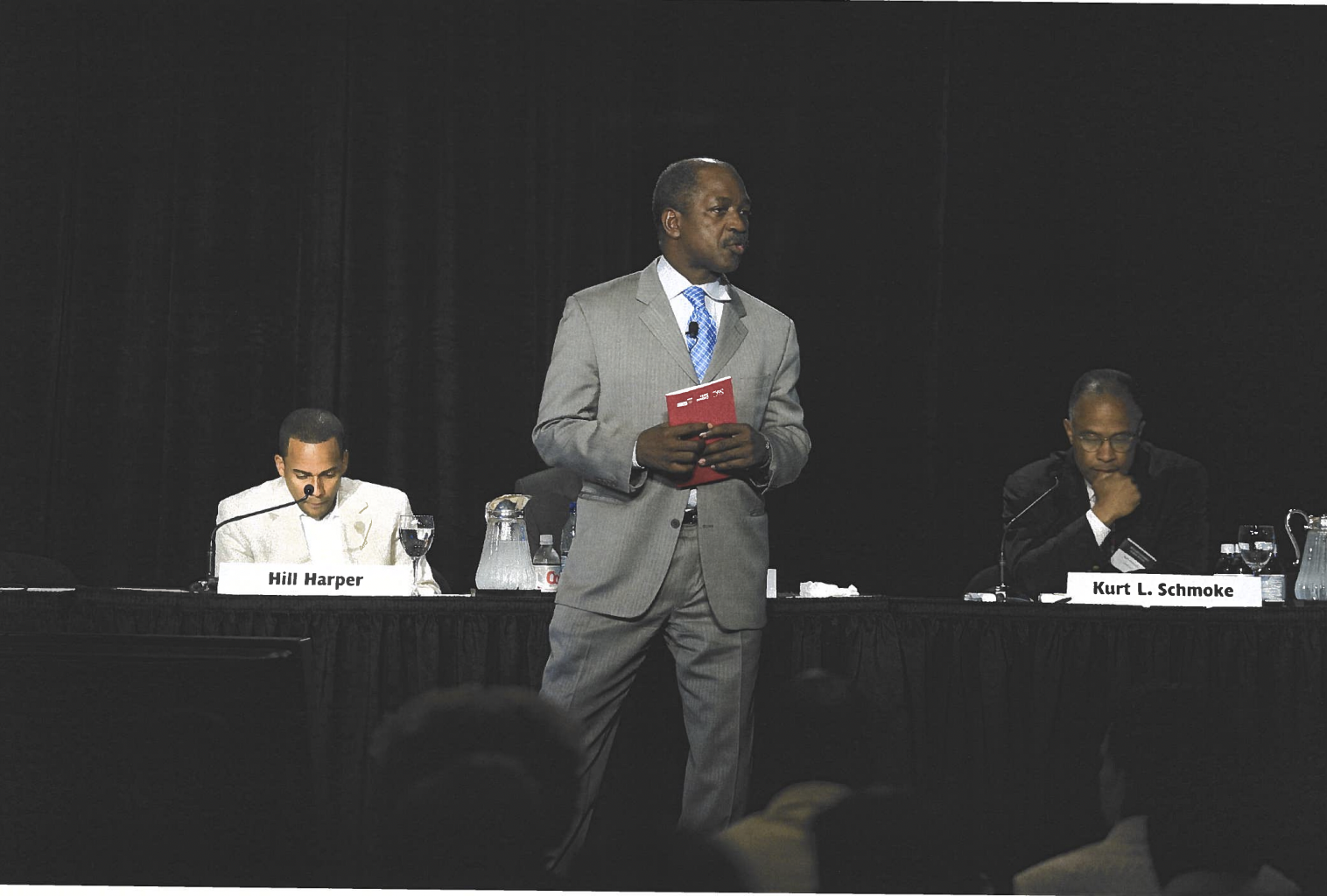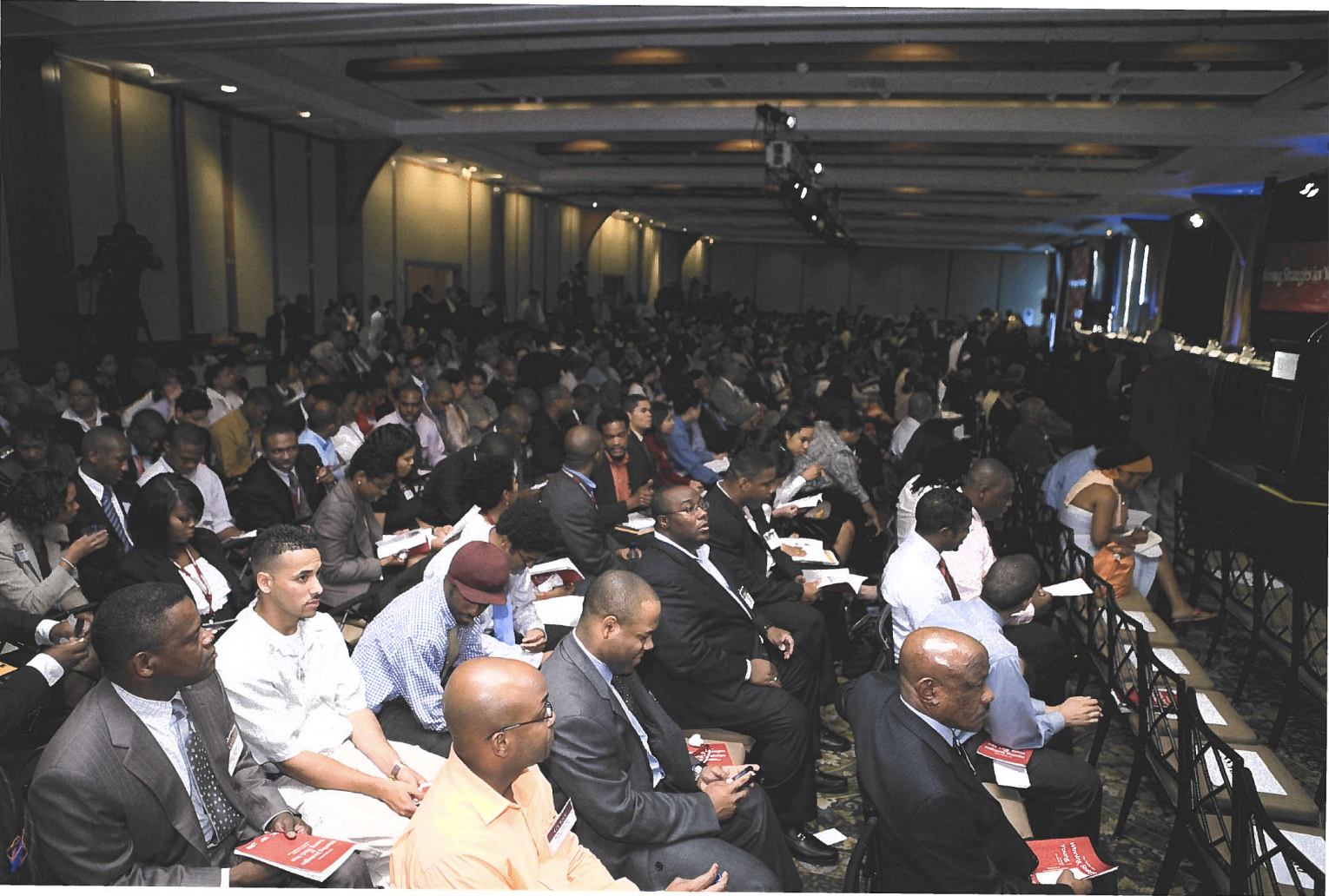About Us
The Pipeline Crisis/Winning Strategies Initiative (“The Pipeline Initiative”) was formed in 2006 as a collaboration of professionals, largely from the private sector, committed to addressing the stark divide between America’s promise and the realities confronting young Black men. As a volunteer effort, we call upon the talent, knowledge and resources of the legal and financial services communities to help address the highly disproportionate rates of limited opportunities for young Black men, particularly with regard to education, employment and career development.
Over the past 17 years, we have partnered with law firms, financial institutions, academic institutions, government, nonprofits and public service organizations to focus attention on the achievement gap and the disparities young Black men continue to face, and on available winning strategies to help address this crisis. We are currently working closely with the City University of New York’s Institute for State and Local Governance. The Pipeline Initiative has worked on a number of areas in need of attention that impact the pipeline, including early child care and education, public school education, employment and economic development, criminal and juvenile justice, and opportunities for high potential youth. Recently we have also focused attention on university and graduate school admissions and private sector diversity, equity and inclusion efforts.
While nonpartisan, the political, economic, social and cultural landscape is dynamic and has changed quite significantly since 2006. We acknowledge the progress that has been made, yet urge individuals, private sector leaders, and policymakers alike to recognize the amount of work that remains to be done.
The Pipeline Crisis/Winning Strategies Initiative works to pool the talent, knowledge and resources of the legal and financial service communities to help reverse the rising rates of school dropouts, joblessness and incarceration among young Black men, and to increase their representation in the pipeline to higher education and professional endeavors.
Our History
Following its inception in 2006, The Pipeline Crisis/Winning Strategies Initiative held three large scale convenings annually that were each over capacity with more than 1,000 attendees, a testament to the level of interest in this issue, as well as The Pipeline Initiative’s reach. During its early years, The Pipeline Initiative maintained contact with private sector professionals with whom it communicated about attending its events and other ways to participate in the Initiative. The Initiative created working groups that focused on specific issues (including education, employment, and criminal justice), created opportunities for programs in these areas to be supported, and formed partnerships between the private sector and New York’s academic community, nonprofit sector, and governmental entities.
As an example, New York City’s Young Men’s Initiative, a public-private partnership that worked to support young men of color throughout NYC by addressing disparities in education, employment, health, and justice, was inspired by The Pipeline Initiative’s early convenings. Members of The Pipeline Initiative leadership team were on the advisory board of this important initiative by the city to develop policies, programs and partnerships that served the Young Men’s Initiative’s mission. The Pipeline Initiative’s initial efforts included developing funding for early childhood care programs and programs supporting young Black men on the path to higher education and employment, providing test prep services for Black junior high school students, supporting research, and creating jobs for young adults who typically have trouble finding employment, including those with a history of incarceration.
Some of The Pipeline Initiative’s more recent work includes co-sponsoring a forum in 2021 hosted by the New York City Bar Association on strategies to support the successful reentry of individuals who were formerly incarcerated. Additionally, in response to the Supreme Court ruling striking down Affirmative Action in higher education, the initiative co-sponsored another forum in 2023 hosted by the New York City Bar Association discussing the intricacies of the opinion and its anticipated effect on workplace diversity in law firms and financial institutions.
-
In response to the Supreme Court ruling striking down Affirmative Action in higher education, The Pipeline Initiative co-sponsored a forum hosted by the New York City Bar Association discussing the intricacies of the opinion and its anticipated effect on workplace diversity in law firms and financial institutions. This event was moderated by Roger Blissett (Head of Regulatory Legal Affairs for MUFG Americas), featuring Alford Young Jr. (University of Michigan), Tracy Richelle High (Sullivan & Cromwell LLP), Rachel Klienman (Deputy Director of Litigation at LDF), and Theodore M. Shaw (University of North Carolina at Chapel Hill).
-
The Pipeline Initiative co-sponsored a forum in 2021 hosted by the City Bar Association, and also sponsored by the CUNY Institute for State and Local Governance and Cornell University, on strategies to support the successful reentry of individuals who were formerly incarcerated, moderated by Michael Jacobson (Institute for State and Local Governance), featuring then Manhattan District Attorney Cyrus Vance Jr., Molly Baldwin (Roca Inc.), Michelle Smith (Concordance Academy of Leadership), Julio Medina (Exodus Transitional Community), and Rev. Maurice Winley (Living Redemption Youth Opportunity Hub). A link to a recording of this forum can be found here.
-
Members of the The Pipeline Initiative Leadership Team have participated as advisors, advisory board members or board members of related initiatives and other public service endeavors, including New York City's Young Men's Initiative during the administrations of Mayor Bloomberg and Mayor DiBlasio.
-
In 2014 The Pipeline Initiative co-sponsored forums discussing closing the opportunity gap and addressing skyrocketing incarceration rates. Moreover, Pipeline released the Close the Gap Brochure with updated data in relation to the educational, wealth, and incarceration disparities faced by Black men and their families. This brochure can be found here.
-
In partnership with the New York City Early Childhood Professional Development Institute at CUNY, Pipeline developed The Pipeline Early Care Initiative, providing early childhood programs with an intense, individualized approach that provides coaching, mentoring, modeling, and leadership support. Programs were invited to apply and were selected based on their need and ability to benefit from the services provided by the leadership team. More information about this initiative can be found here.
-
In 2007, the Pipeline Crisis/Winning Strategies Initiative recommended the New York City Bar Association to appoint a Task Force to enhance employment opportunities of the formerly incarcerated in order to reduce recidivism. This Task Force was charged not only with identifying the barriers that previously incarcerated persons face when seeking work in the legal sector and elsewhere, but also with determining ways to surmount them. A full report on their findings can be found here.
-
In 2008 Pipeline released a comprehensive policy agenda promoting specific reforms in the areas of early childhood care, public education, criminal and juvenile justice, employment and economic development, and opportunities for high potential youth. The full agenda can be found here.
-
In 2007, The Pipeline Initiative held its second summer forum at Chelsea Piers concerning the widening achievement gap between young Black men and the rest of society, and attracted over 1,000 people representing nearly every sphere of corporate and public life, including New York’s legal, financial, business, government, academic and media communities.
-
By leaders from Sullivan & Cromwell LLP, Goldman, Sachs & Co., and Harvard Law School’s Charles Hamilton Houston Institute for Race & Justice, The Pipeline Crisis/Winning Strategies Initiative was launched to address the social and economic conditions that have significantly reduced the number of young Black men in the pipeline to higher education and professional endeavors. With over 1000 attendees, the event generated a remarkable level of interest and hope, unveiling a palpable thirst for solutions to this epic struggle.


